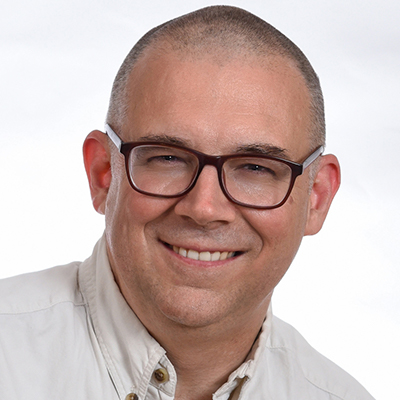By Peter Malinoski, Ph.D.
Human beings need to be part of communities. According to Aristotle, human beings are “social animals” and therefore naturally seek the companionship of others as part of their well being. Some branches of psychology like attachment theory attribute mental health issues to a failure to bond in key relationships. We frequently refer to the communion of saints, the Body of Christ, the Church militant, and all of these underscore the importance of community in the Catholic Church.
In our secular society today, we often experience a breakdown in community, which not only affects our own lives, but the lives of those around us. It’s time to recapture healthy communities through proactive and deliberate efforts.
Recognize the Loss of Healthy Communities
In order to be motivated to proactively change something, we first need to recognize the need for the change. Modern society has seen a serious breakdown in family life, our first and most important natural community. Nuclear families are often troubled; extended families are sometimes non-existent.
Although social media and technology promise to improve human connection, the effect is frequently the opposite. Individuals become more isolated from the people around them as they invest in false, virtual worlds. Automated birthday and anniversary wishes replace the personal greeting from someone who actually remembered and acknowledged a special day.
And, in recent months, we’ve all been told to shelter-in-place, self-isolate, and social distance as protective measures against the spread of COVID-19.
What has been the effect on our sense of community, our sense of being connected to others with whom we share a common bond?
Find the Silver Lining
Before the coronavirus pandemic, it may have been easy to plow through our days, often filled with work, school, activities, and entertainment. We had our routines, which developed slowly over time, and perhaps the loss of community connection was gradual enough not to notice.
However, when COVID-19 hit, we all suddenly lost the familiar, traditional ways of connecting and interacting with those around us. Almost all of us have been forced out of our comfort zones and out of our routines into new ways bonding with others. And for the foreseeable future, we will continue to adjust and adapt to the new realities of our changed society. So how do we continue to build community in a time like this?
First, let’s return to Romans 8:28, “All things work together for good for those who love the Lord.” All things, no exceptions. We are reminded by Holy Scripture to open our minds to the possibilities for community that this pandemic offers us. Yes, we’ve suffered losses in the community – some of them grievous, such as the deaths of loved ones. We should not deny those realities. But we should also bear in mind that God only allows such difficulties to happen because of the greater good He can draw from those painful events for us. By opening ourselves up to the positives is a shift in mindset that brings in new possibilities, ones that we may not have imagined
Embrace Transformative Action Steps
So what do we do now? Let’s start by looking for the opportunities around us to connect with one another right now that we might not otherwise have considered under ordinary circumstances. Bring that question to Our Lord in prayer and listen to what He asks you to do. Here are some possibilities:
- Are you taking advantage of the extra family time imposed by the lockdowns? Don’t just exist in the same household together, but find ways to use this precious time with spouses and children to build meaningful relationships through discussions, shared projects, and memorable experiences.
- Remember those in isolation. Many of our older family and friends are extremely lonely and isolated right now. Can we deliberately call or write them? If they are technologically savvy, can we schedule a regular video chat?
- Social distancing has rapidly improved many individuals’ technology skills in using videoconferencing to connect. Although online communities have been around for some time, the current situation opens the door to better allow people with shared interests to come together virtually. This is particularly true for individuals with niche interests.
Enjoy the Benefits of Community
“When we live our lives in isolation, what we have is unavailable and what we lack is unprocurable,” writes St. Basil. People form and maintain communities because it is good for them. Exploring why we need community can bring clarity to how we can better go about connecting and relating with others in community.
- We need support and relational connection. We are social beings, made to love and be loved not only by God, but by other Christians. This is so important that our Lord emphasized it in the second great commandment: Love your neighbor as yourself. We need others to bring out the best in us, to challenge us, and to strengthen us on our journeys. We need to be able to receive love and other good things from others, which not only helps us, but helps the other.
- We need the experience, wisdom, and advice of others. None of us has experienced everything. We need a fresh perspective from others who have been in similar situations.
- Community provides meaning, purpose and motivation. Having a shared sense of belonging can increase a sense of accountability and mutual support in difficult times. It also provides a forum for joy and successes to be shared, recognized and celebrated. Other members in the community can challenge us to greater growth and encourage us to take on greater challenges.
Take an inventory of your community connections as they stand right now. What is missing? How could that deficit be met? Let’s get deliberate and reflective about how we are to live in community. Not just for us, but for others.
About Peter Malinoski, Ph.D.
 Peter Malinoski, Ph.D., is president and co-founder of Souls and Hearts. He has been a clinical psychologist for the past 18 years in private practice in Indianapolis. He specializes in resolving problems and healing wounds that bridge the psychological and spiritual realms. A particular emphasis on unconscious psychological factors that thwart one’s capacity to receive love from God, the Blessed Virgin Mary, and other people underlies his work. For more information about his private practice, please visit Secure Foundations.
Peter Malinoski, Ph.D., is president and co-founder of Souls and Hearts. He has been a clinical psychologist for the past 18 years in private practice in Indianapolis. He specializes in resolving problems and healing wounds that bridge the psychological and spiritual realms. A particular emphasis on unconscious psychological factors that thwart one’s capacity to receive love from God, the Blessed Virgin Mary, and other people underlies his work. For more information about his private practice, please visit Secure Foundations.
